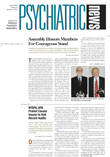Selective mutism (SM) is a rare disorder that often begins when children start preschool. Despite talking normally at home, many children with the condition fail to speak to teachers or other nonfamily members, a condition that interferes with their educational and social development.
“Nearly all children with SM perceive their home as a safe zone. When they leave home to attend school, they often become extremely anxious, clingy, and uncommunicative,” according to Sucheta Connolly, M.D., director of the pediatric and anxiety disorders clinic at the psychiatry department at the University of Illinois at Chicago.
The prevailing view among clinicians is that SM is caused by social anxiety rather than willful defiance of parents or teachers, although oppositional behavior may be a secondary effect. Most clinicians consider SM as an anxiety spectrum disorder because it can last from a few months to years depending on the severity of anxiety and avoidance symptoms.
In addition, about 20 percent of children with SM have some type of speech and language problem, which may exacerbate their social anxiety, according to Connolly.
Studies in the last few decades have confirmed a strong link between SM and anxiety disorders—in particular, social phobia. The term “elective mutism” used in DSM-III was changed to “selective mutism” in DSM-IV.
However, evidence-based research into the diagnosis and treatment of SM has been lacking, according to Lindsey Bergman, Ph.D., associate director of the childhood OCD, anxiety, and Tourette’s disorder program at the University of California at Los Angeles.
Bergman developed the Selective Mutism Questionnaire (SMQ), which she described in an interview with Psychiatric News. “The SMQ focuses on three settings where children spend their time—school, family/home, and public/social settings. There are 17 items assessing speaking, and parents and teachers are asked to assess the level of interference in functioning caused by their child’s not speaking in each setting,” said Bergman.
A pilot test of the questionnaire involved a clinical sample of about 45 children aged 4 to 10 who met DSM-IV criteria for SM. The SMQ confirmed their diagnosis and indicated that 95 percent also met the diagnostic criteria for social phobia. SM was more common in girls, who accounted for 69 percent of the diagnosed subjects. Children with SM spoke most often to family members, relatives, and friends outside school; they spoke less often with friends at school, physicians or dentists, and teachers or school staff, said Bergman. “These results are consistent with findings from the literature about SM.”
She recently tested the SMQ in a much larger sample involving 595 parents who thought their children had SM. They were recruited from Internet sites concerned with that disorder or anxiety disorders, said Bergman. “I was surprised by how similar the results were to the pilot clinical sample. Subjects in both of the samples spoke rarely in school and public/social settings compared with family/home settings.”
When Bergman compared the SM samples identified in her pilot tests with a small clinical sample of children diagnosed with anxiety disorders including social phobia and separation anxiety disorder, it was clear that the children with SM spoke less often in all three settings. “That indicated that the SMQ could discriminate children with SM from children with other anxiety disorders,” said Bergman.
To distinguish SM from communication and other anxiety-spectrum disorders, Bergman recommended using the following assessment tools that can help in diagnosing SM and its severity:
• The Anxiety Disorder Interview Schedule for Children (ADIS-C) with supplemental questions about social phobia
• The Social Anxiety Scale for Children–R (SASC-R)
• The Vineland Language Scale from the Vineland Adaptive Behavior Scale for parents and teachers
• The Achenbach scales (parents and teacher)
Clinicians should require parents to videotape the child’s speaking at home so clinicians can confirm verbal reports.
“The SMQ is also an important tool for measuring the effectiveness of clinical treatment in children. Our clinical experience is that SSRIs approved for anxiety disorders can be useful in cases of severe SM, as can modified cognitive-behavioral therapy,” Connolly told Psychiatric News.
Information about the SMQ can be obtained from Bergman by e-mail at [email protected]. ▪
